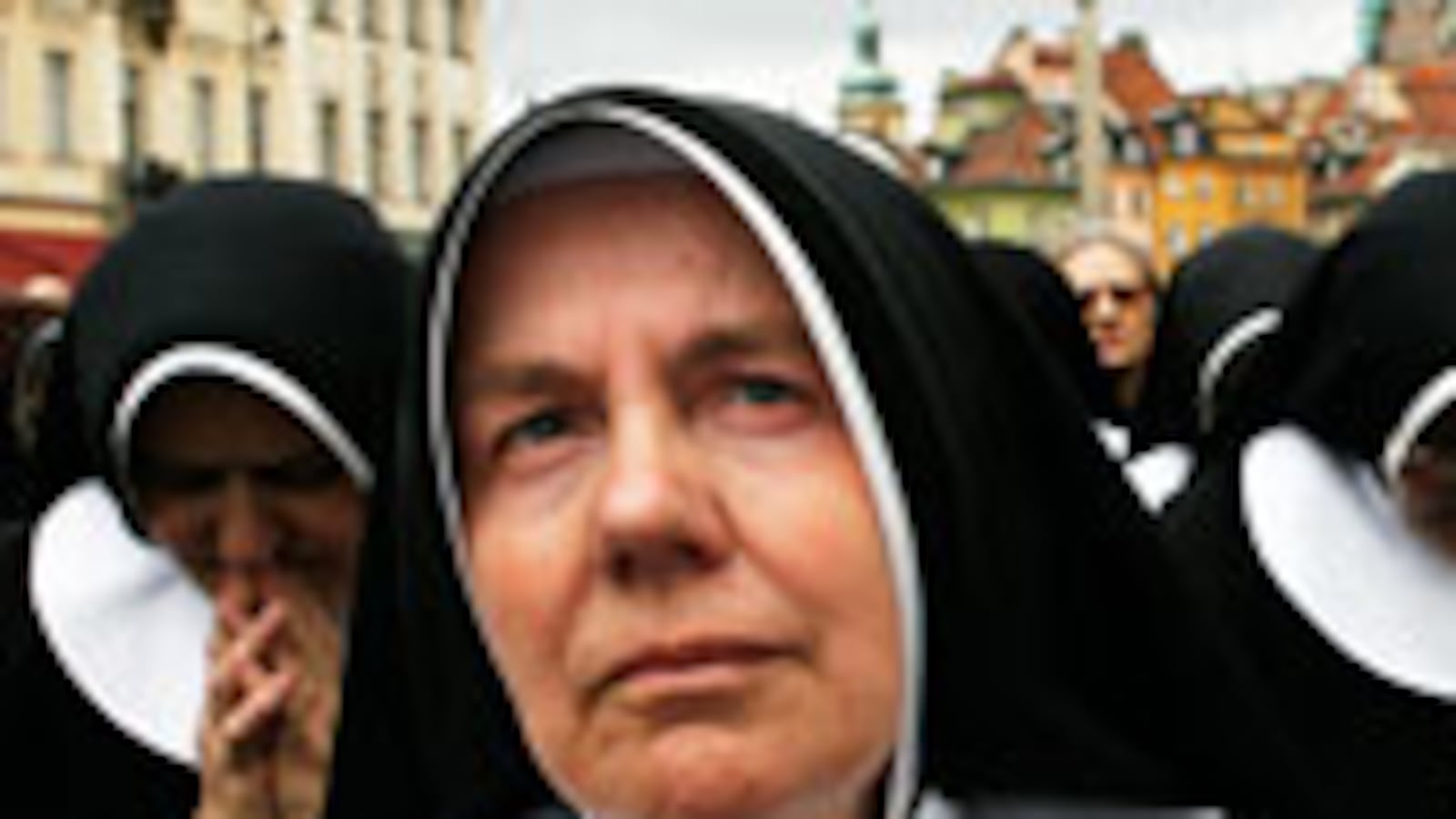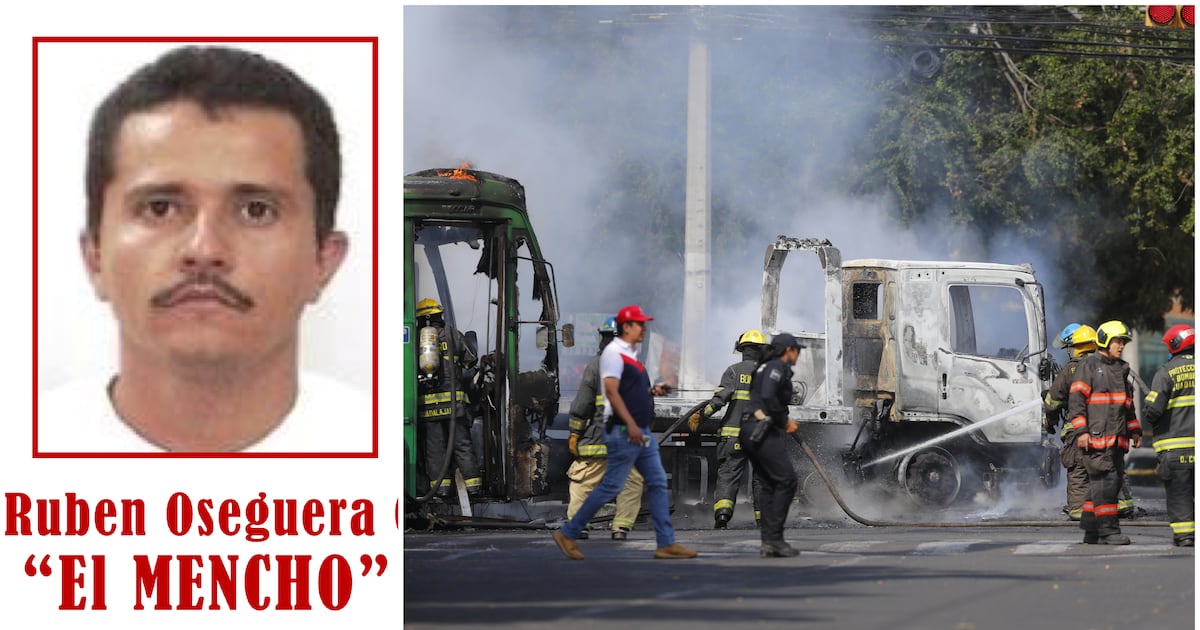
The Catholic Church has claimed that it lacked the resources to properly investigate its sexual-abuse epidemic. It has blamed church bureaucracy for its failure to act quickly against pedophile priests, and has made much of the need to protect priests before they’re proven guilty.
When it comes to nuns, though, the church is somehow able to act with alacrity. This week, Bishop Thomas J. Olmsted of Phoenix announced the excommunication of Sister Margaret McBride for the crime of approving an abortion necessary to save a woman’s life. The patient, a 27-year-old who was 11 weeks pregnant, had pulmonary hypertension, which interferes with the functioning of the heart and lungs. Pregnancy exacerbates the condition, and doctors at St. Joseph’s Hospital and Medical Center determined that she would die without an abortion. St. Joseph’s is Catholic, so an ethics committee meeting was convened. As part of the committee, Sister McBride opted to save the patient’s life. For that, she’s been rebuked, transferred, and essentially barred from participating in Catholic life.
The church’s attempt to bring the nuns into line has repercussions for non-Catholics as well as Catholics.
The story was just the latest example of strain between nuns and the Catholic Church’s male religious hierarchy. As The New York Times reported last summer, the Vatican, fearing that nuns are straying from church orthodoxy, is “conducting two sweeping investigations of American nuns, a development that has startled and dismayed nuns who fear they are the targets of a doctrinal inquisition.” And nuns famously broke with the United States Conference of Catholic Bishops in supporting health-care reform, despite claims that the new law was insufficiently antiabortion.
This tension isn’t particularly surprising. Nuns have long worked in education, nursing, and other helping professions, giving them a much richer real-world perspective than that of bishops and cardinals, who move in a rarefied all-male milieu. Ever since the liberal reforms of Vatican II, nuns have had new freedom to participate in public life—many stopped wearing habits, pursued professions, and moved into apartments rather than convents. The president of the Catholic Health Association, which represents about 600 Catholic hospitals, is a nun, Sister Carol Keehan. Sister Mary Jean Ryan is head of SSM Health Care, which employs 22,000 people and owns 15 hospitals and two nursing homes in four states. These nuns are far more enmeshed in the world, with all its messiness and ambiguities, than the male hierarchy is.
The church’s attempt to bring the nuns into line has repercussions for non-Catholics as well as Catholics. After all, the church, which controls 16 percent of America’s hospital beds, plays a huge role in our health-care system. A 2002 study by MergerWatch, a New York project that tracks the threat to reproductive-health services when Catholic and secular hospitals merge, found that religiously affiliated hospitals get more than $45 billion in public funding each year. Often, as with St. Joseph’s in Phoenix, the Catholic hospital is the biggest one in town. And yet if a woman ends up in one with a life-threatening obstetric emergency, doctors might have to await the results of an ethics committee hearing before they decide to save her life. And that ethics committee might very well vote no.
In chastising Sister McBride, Bishop Olmsted has been unapologetic about his conviction that abortion cannot be justified, even when the mother will otherwise die. “First, we have to remember that a physician cannot be 100 percent sure that a mother would die if she continued the pregnancy,” he said in a document published by the diocese. “Second, the mother’s life cannot be preferred over the child’s… It is not better to save one life while murdering another.”
The real-world implications of this view go beyond extreme cases like the one in Phoenix. Researchers have documented a number of situations in which women suffering miscarriages have received improper treatment at Catholic hospitals because of an overemphasis on the life of the fetus. A 2008 article in the American Journal of Public Health found that, when treating miscarrying women, “Catholic-owned hospital ethics committees denied approval of uterine evacuation while fetal heart tones were still present, forcing physicians to delay care or transport miscarrying patients to non-Catholic-owned facilities. Some physicians intentionally violated protocol because they felt patient safety was compromised.” A study published this spring found that nearly a fifth of doctors who have worked at religiously affiliated hospitals have come into conflict with their employers over religious restrictions on patient care.
The Catholic Church generally allows for interventions that will have the side effect of killing a fetus or an embryo—for example, in treating an ectopic pregnancy—but not a procedure that has abortion as its intent. Yet as the case at St. Joseph’s shows, the line between these two situations can be blurry, and people who work at Catholic hospitals often have to make discerning judgments. Their wrangling over theological minutiae ends up having a profound effect on the lives of patients, whether they’re Catholic or not. The pressure on nuns like Sister McBride has repercussions for all of us.
Michelle Goldberg is the author of The Means of Reproduction: Sex, Power and the Future of the World and Kingdom Coming: The Rise of Christian Nationalism. She is a senior correspondent for The American Prospect, and her work has appeared in The New Republic, The Nation, the Los Angeles Times, Glamour, and many other publications.






